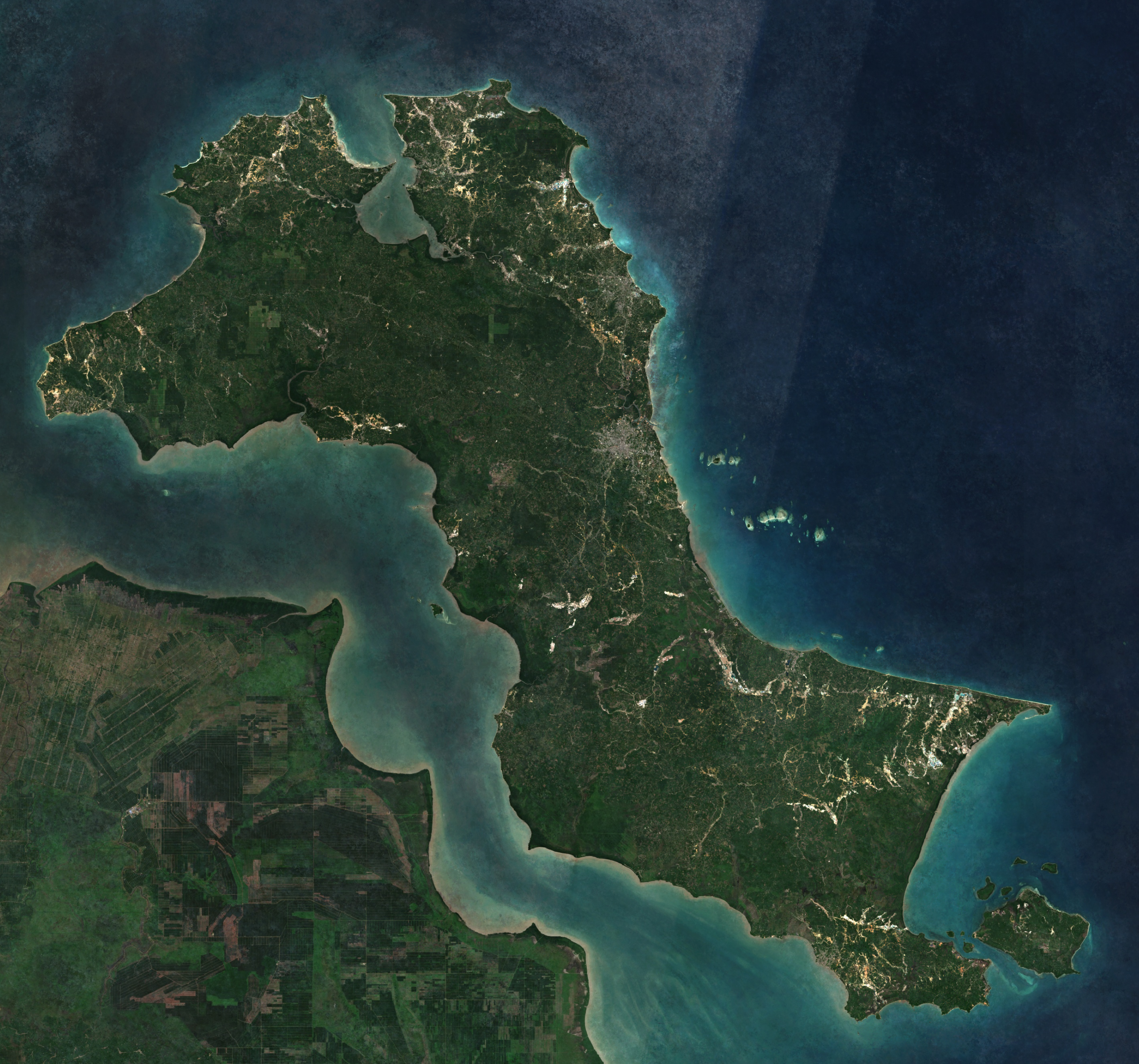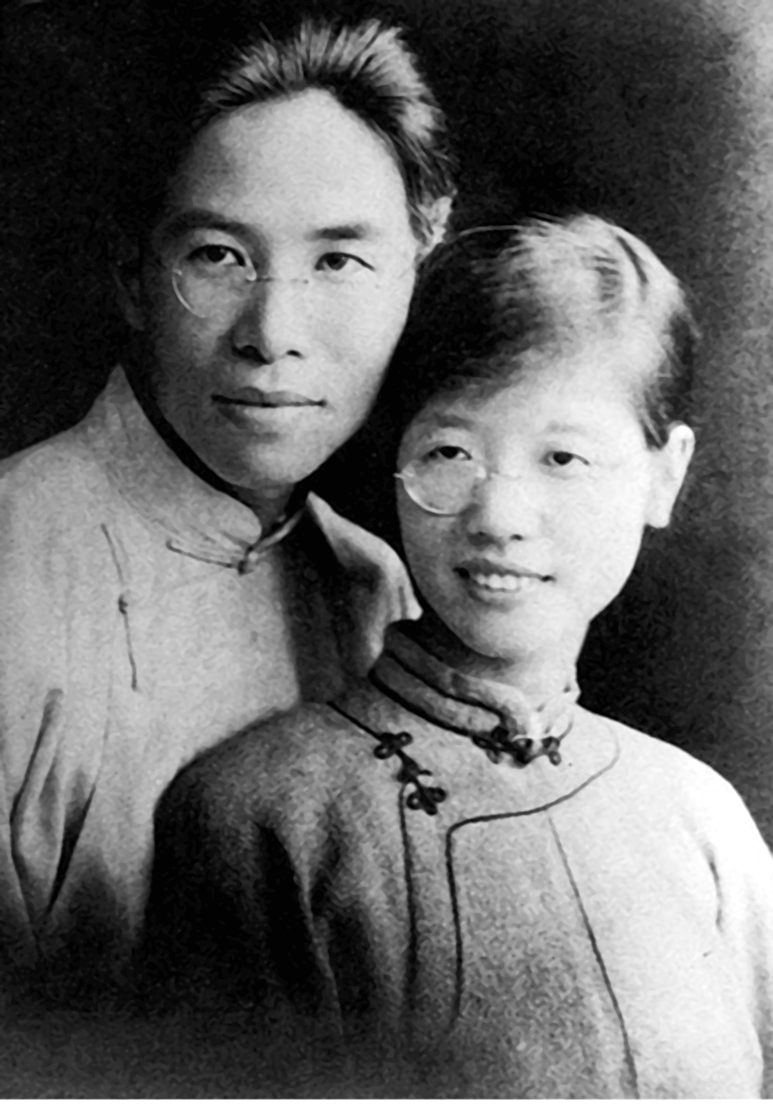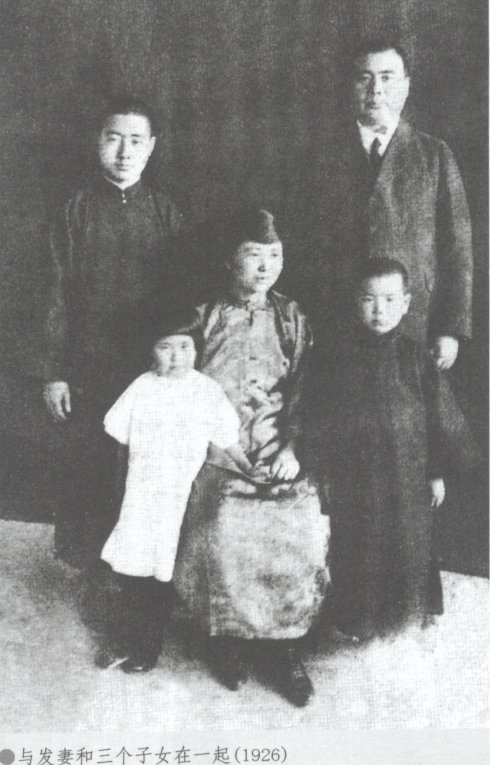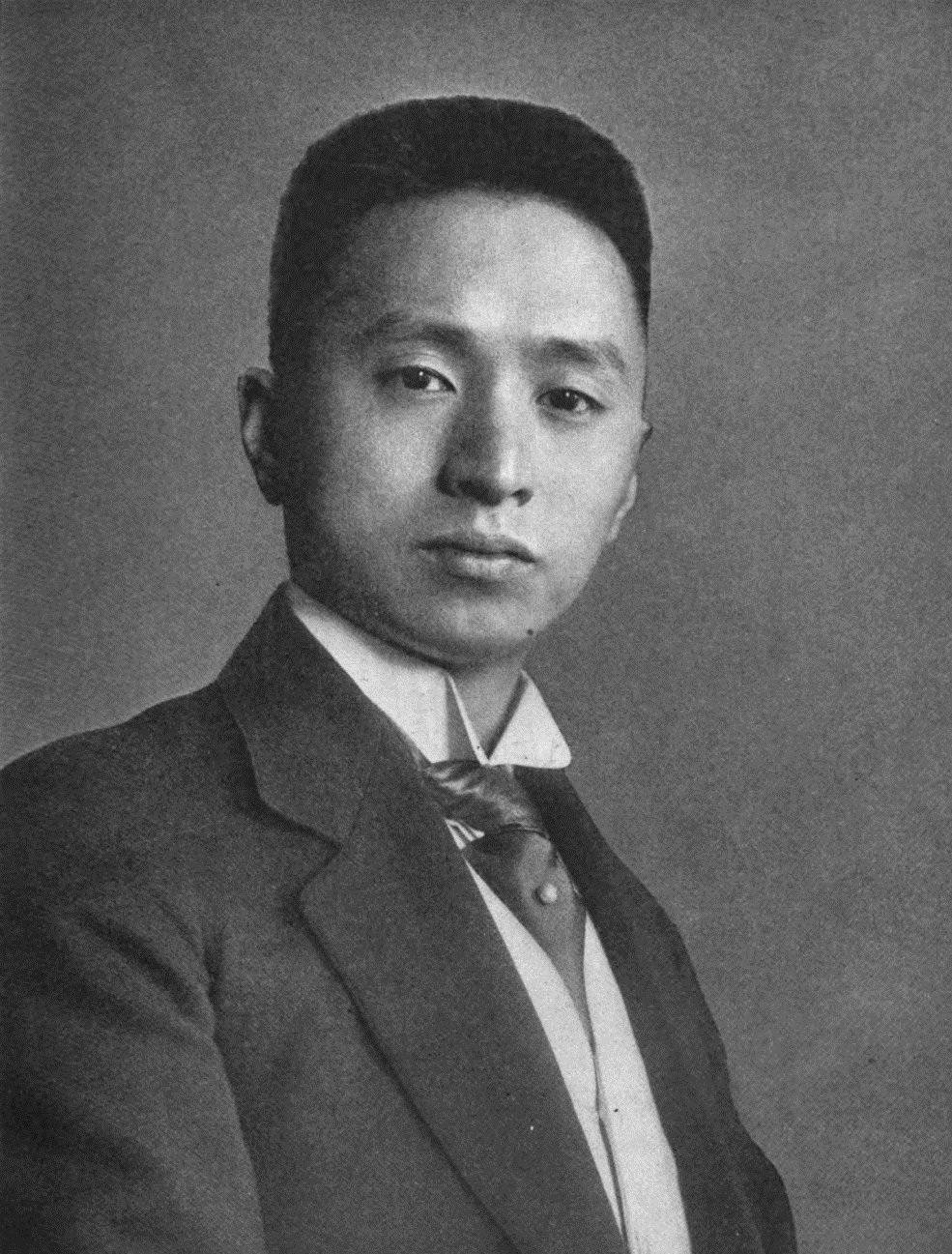|
Wen Yuan-ning
Wen Yuan-ning ( 1900-1984), also known as Oon Guan-neng, was a Chinese professor, writer, and diplomat. Life and career Wen Yuan-ning was born in Bangka off Sumatra, formerly of the Dutch East Indies and now of Indonesia, to an immigrant Chinese Hakka family. He grew up in Bangka and Singapore and went on to study in England where he registered under the Hakka name of Oon Guan-neng at King's College, Cambridge. After receiving his B.A. Hons. and LLB degrees, Wen moved to China and took the Mandarin transliteration of his name Wen Yuan-ning. Wen became a professor of English language and literature in 1925, teaching at various institutions including Peking University, Tsinghua University, Peking Women’s College of Education in 1920s Peking and Kwang Hua University in 1930s Shanghai. Some of his notable students were Liang Yuchun, Qian Zhongshu, Cao Yu, Li Jianwu. He became a contributing editor of the English-language weeklThe China Critic(1928–1940, 1946)url=http://www.c ... [...More Info...] [...Related Items...] OR: [Wikipedia] [Google] [Baidu] |
Bangka Island
Bangka is an island lying east of Sumatra, Indonesia. It is administered under the province of the Bangka Belitung Islands, being one of its namesakes alongside the smaller island of Belitung across the Gaspar Strait. The 9th largest island in Indonesia, it had a population of 1,146,581 at the 2020 census; the official estimate as at mid 2023 was 1,191,300.Badan Pusat Statistik, Jakarta, 28 February 2024, ''Provinsi Kepulauan Bangka Belitung Dalam Angka 2024'' (Katalog-BPS 1102001.19) It is the location of the provincial capital of Pangkal Pinang, and is administratively divided into four regencies and a city. The island itself and the surrounding sea suffers considerable environmental damage from its thriving tin mining industry which operates on- and offshore. Geography Bangka is the largest landmass of the province of the Bangka Belitung Islands. It lies just east of Sumatra, separated by the Bangka Strait; to the north lies the South China Sea, to the east, across the Ga ... [...More Info...] [...Related Items...] OR: [Wikipedia] [Google] [Baidu] |
Hu Shih
Hu Shih ( zh, t=胡適; 17 December 189124 February 1962) was a Chinese academic, writer, and politician. Hu contributed to Chinese liberalism and language reform, and was a leading advocate for the use of written vernacular Chinese. He participated in the May Fourth Movement and China's New Culture Movement. He was a president of Peking University and Academia Sinica. Hu was the editor of the '' Free China Journal'', which was shut down for criticizing Chiang Kai-shek. In 1919, he also criticized Li Dazhao. Hu advocated that the world adopt Western-style democracy. Moreover, Hu criticized Sun Yat-sen's claim that people are incapable of self-rule. Hu criticized the Nationalist government for betraying the ideal of Constitutionalism in ''The Outline of National Reconstruction''. Hu wrote many essays questioning the political legitimacy of Mao Zedong and the Chinese Communist Party. Specifically, Hu said that the autocratic dictatorship system of the CCP was "un-Chinese" a ... [...More Info...] [...Related Items...] OR: [Wikipedia] [Google] [Baidu] |
Ling Shuhua
Ling Shuhua ( zh, , s=凌叔华, t=凌叔華; March 25, 1900 – 1990), also known as Su-hua Ling Chen after her marriage, was a Chinese modernist writer and painter whose short stories became popular during the 1920s and 1930s. Her work is characterized by her use of symbolism and ''boudoir literature.'' Biography Ling Shuhua was born Ling Ruitang on March 25, 1904 in Beijing. Shuhua was the daughter of the third concubine of a high ranking Qing official, Ling Fupeng, from the southern province of Canton Province, China, Canton, who later served as the mayor of Beijing. She had a younger sister, Amy Ling Shuhao, who married K. K. Chen. She lived in the familial mansion until the age of seven; she then was sent to Kyoto to study. In 1922, Ling Shuhua enrolled Yenching (Yanjing) University in Beijing, studied French, English and Japanese. She went to school alongside the poet and writer Bing Xin. And in 1924, Ling met Chen Yuan in Beijing. At the time, Chen Yuan was an English pr ... [...More Info...] [...Related Items...] OR: [Wikipedia] [Google] [Baidu] |
Lim Boon Keng
Lim Boon Keng (; 18 October 1869 – 1 January 1957) was a Peranakan physician who advocated social and educational reforms in Singapore in the early 20th-century. He also served as the president of Xiamen University in China between 1921 and 1937. Early life and education Mr Lim Boon Keng was born on 18 October 1869 in Singapore, Straits Settlements, as the third generation of a Peranakan with ancestry from Haicheng Town, Longhai City, Fujian Province based from his grandfather Lim Mah Peng who first immigrated to Penang, Malaya in 1839, where he married a Straits-born Chinese woman. Lim Mah Peng later moved to Singapore where his only son, Lim Thean Geow (), the father of Lim Boon Keng, was born. Lim studied at Raffles Institution. However, the death of his parents during his childhood inspired him to pursue a career in medicine. In 1887, Lim became the first Singaporean to receive a Queen's Scholarship. He gained admission to the University of Edinburgh and graduated i ... [...More Info...] [...Related Items...] OR: [Wikipedia] [Google] [Baidu] |
Feng Yuxiang
Feng Yuxiang (; ; 6 November 1882 – 1 September 1948), courtesy name Huanzhang (焕章), was a Chinese warlord and later general in the National Revolutionary Army. He served as Vice Premier of the Republic of China from 1928 to 1930. At the start of the 1911 Revolution, Feng was an officer in the ranks of Yuan Shikai's Beiyang Army. He initially joined forces with the revolutionaries, but came to support Yuan's regime. In 1914, he converted to Christianity, earning him the nickname the "Christian General". He became a warlord in Northwest China, based in Shaanxi, and rose to a high rank within the Zhili clique, a powerful warlord faction. In 1924, during the Second Zhili-Fengtian war, Feng launched the Beijing Coup, which knocked the Zhili out of power, and re-organised his troops as the Guominjun. He brought Sun Yat-sen to Beijing for negotiations on re-unification, but this was not realized. In 1926, Feng was defeated by the Zhili and Fengtian cliques in the An ... [...More Info...] [...Related Items...] OR: [Wikipedia] [Google] [Baidu] |
Puyi
Puyi (7 February 190617 October 1967) was the final emperor of China, reigning as the eleventh monarch of the Qing dynasty from 1908 to 1912. When the Guangxu Emperor died without an heir, Empress Dowager Cixi picked his nephew Puyi, aged two, to succeed him as the Xuantong Emperor. Puyi's father, Zaifeng, Prince Chun, served as regent before Puyi was forced to abdicate as a result of the Xinhai Revolution, which ended two millennia of Chinese Empire, imperial rule and established the Republic of China (1912–1949), Republic of China. The Empress Dowager Longyu signed the Imperial Edict of the Abdication of the Qing Emperor on Puyi's behalf, and in return the royal family was offered the Articles of Favourable Treatment of the Great Qing Emperor after His Abdication, Articles of Favorable Treatment, which allowed him to retain his imperial title and continue to live in the Forbidden City. From 1 to 12 July 1917, Puyi was briefly Manchu Restoration, restored to the Qing thron ... [...More Info...] [...Related Items...] OR: [Wikipedia] [Google] [Baidu] |
George Yeh
George Kung-chao Yeh (1904–1981), also known as Yeh Kung-chao, was a diplomat and politician of the Republic of China. Educated in the U.S. and the U.K., he graduated from Amherst College in 1925 and later Cambridge University. He taught English literature at Beijing's Tsinghua University, where his students included renowned 20th century Chinese writer Ch'ien Chung-shu. He was the first Minister of Foreign Affairs since 1949. On February 6, 1950, the ROC air force bombed Shanghai, causing extensive damage to American-owned property in the city including the Shanghai power company. The American government responded by sending a diplomatic protest to the Nationalist Ministry of Foreign Affairs. Yeh defended the bombing to American diplomats and stated that the ROC would provide early warning before such attacks in the future. The United States rejected the proposed arrangement and the American chargé d'affaires warned Yeh that serious difficulties would arise if such things c ... [...More Info...] [...Related Items...] OR: [Wikipedia] [Google] [Baidu] |
Mei Lanfang
Mei Lan (22 October 1894 – 8 August 1961), better known by his stage name Mei Lanfang, was a notable Chinese Peking opera artist in Chinese theater, modern Chinese theater. Mei was known as the "Queen of Peking Opera". Mei was exclusively known for his dan (Chinese opera), female lead roles (''dan'') and particularly his "qingyi (Chinese opera), verdant-robed girls" (''qingyi''), young or middle-aged women of grace and refinement. He was considered one of the "Four Great ''Dan''", along with Shang Xiaoyun, Cheng Yanqiu, and Xun Huisheng. Early life Mei Lanfang was born in Beijing in 1894 into a family of Peking opera and Kunqu performers (performers of a traditional Chinese theatre composed of drama, ballet, opera, poetry, and music) of Taizhou, Jiangsu ancestry. Career At age 8, Mei Lanfang started training in Chinese opera skills such as acting, singing and acrobatics. Mei Lanfang made his stage debut at the Guanghe Theatre in 1904 when he was 11 years old playing a we ... [...More Info...] [...Related Items...] OR: [Wikipedia] [Google] [Baidu] |
Ma Junwu
Ma Junwu 馬君武 (1881 in Guilin – 1940 in Guilin) was a scientist and educator in China and first president of Guangxi University. Biography Ma Junwu was born in Guilin in 1881 and enlisted in one of the new schools for higher education there. Later he went to Shanghai to study French at the Aurora University. With a friend Ma Junwu founded a publishing and translation society. The years 1902 to 1903 Ma Junwu spent in Japan, where he met Sun Yatsen and later became a member of Sun's party. From 1907 onward, Ma Junwu studied in Berlin, where in 1911 he received his engineering degree in metallurgy. After holding various political offices in the Chinese Republic, Ma Junwu returned to Berlin in 1914 to study agricultural chemistry and returned to China with his doctorate degree in 1916. There he resumed leadership positions in various ministries of the government, besides taking up teaching. Ma Junwu translated Charles Darwin's ''On the Origin of Species'' into Chinese. ... [...More Info...] [...Related Items...] OR: [Wikipedia] [Google] [Baidu] |
Han Fuju
Han Fuju or Han Fu-chü (; 1890 – 24 January 1938) was a Kuomintang general in the early 20th century. He rose up the ranks of the Guominjun clique in the Warlord era but then went over to the Kuomintang, and held the position of military governor of Shandong from 1930 to 1938. Han had one wife, two concubines, and four sons. Biography Early life Han Fuju was born in Dongshantai Village (), Ba County, Hebei Province. He had had little aptitude for schooling. Nonetheless, while quite young, he had worked as a clerk in his hsien ("county") until his gambling debts forced him to run away and enlist in the army of General Feng Yuxiang. Han rose quickly, from clerk to chief clerk, to lieutenant, to captain, and after an uprising, to major. During the warlord upheavals in the 1920s, he emerged as commander of General Feng's 1st Army Group. Governor and warlord In 1928, he was appointed chairman (governor) of Henan province by Feng, and in 1929, he was confirmed in office ... [...More Info...] [...Related Items...] OR: [Wikipedia] [Google] [Baidu] |
Gu Hongming
Gu Hongming ( zh, c=辜鴻銘, p=Gū Hóngmíng, w=Ku Hung-ming, poj=Ko͘ Hông-bêng; 18 July 185730 April 1928) was a Chinese scholar born in British Malaya man of letters. He also used the pen name Amoy Ku. Life Gu Hongming was born in Penang, British Malaya (present day Malaysia), the second son of a Chinese rubber plantation superintendent, whose ancestral hometown was Tong'an, Fujian province, China, and his Portuguese wife. The British plantation owner was fond of Gu and took him, at age ten, to Scotland for his education. He was then known as Koh Hong Beng (the Min Nan pronunciation of his name). In 1873 he began studying Literature at the University of Edinburgh, graduating in the spring of 1877 with an M.A. He then earned a diploma in Civil Engineering at the University of Leipzig, and studied law in Paris. He returned to Penang in 1880, and soon joined the colonial Singapore civil service, where he worked until 1883. He went to China in 1885, and served as an adv ... [...More Info...] [...Related Items...] OR: [Wikipedia] [Google] [Baidu] |
Wellington Koo
Koo Vi Kyuin (; January 29, 1888 – November 14, 1985), better known as V. K. Wellington Koo, was a Chinese diplomat, politician, and statesman of the Republic of China (1912–1949), Republic of China. Born in Shanghai, Koo studied at Columbia University in the United States, where he obtained a Doctor of Philosophy, PhD in international law and diplomacy. On his return to China in 1912, he became Yuan Shikai's secretary for foreign affairs, and in 1919, was a member of China's delegation at the Paris Peace Conference (1919–1920), Paris Peace Conference, where he unsuccessfully demanded the return of Shandong. Between 1922 and 1927, Koo successively served the Beiyang government as minister of foreign affairs, minister of finance, acting premier, and president. After the Northern Expedition toppled the government in 1928, Koo joined the Nationalist government and continued his diplomatic career. In 1931, he represented China at the League of Nations to protest the Japanese ... [...More Info...] [...Related Items...] OR: [Wikipedia] [Google] [Baidu] |







